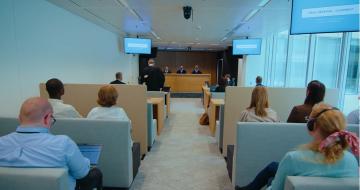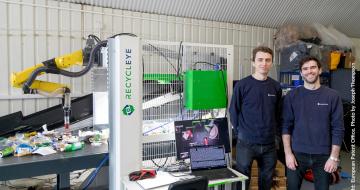The patent holder has the sole right to exploit the protected invention. However, a number of exceptions and limitations apply to this right. In certain circumstances, third parties may rely on these exceptions in order to use the invention without the consent of the patent holder. The same exceptions and limitations apply to supplementary protection certificates for medicinal products and plant protection products, as they confer the same rights on their holder as his patent. An additional exception also applies to supplementary protection certificates for medicinal products, the so-called “manufacturing waiver”.
Private use
The rights resulting from the patent do not extend to activities undertaken in a private capacity and for non-commercial purposes.
Exception for research purposes
No authorisation needs to be requested for use for scientific purposes of the object of a patented invention and/or by means of that invention. An invention can, therefore, be freely used to conduct research on the invention itself or use it as a research tool to advance scientific research.
Preparations in pharmacies
The patent holder may not oppose the preparation of medicines in pharmacies, provided that the medicine is intended for individual use and is issued on medical prescription. This exception also covers acts concerning medicines thus prepared. A pharmacist can, therefore, prepare and sell medicines protected by a patent, provided that they are prescribed medicines in individual cases.
Exhaustion
When a product containing a protected invention is placed on the market with the authorisation of the patent holder, the patent rights on that copy are exhausted. This means that the patent holder may no longer oppose new acts of use or marketing of the copy thus put into circulation.
This principle of exhaustion does not apply internationally but only within the European Economic Area. The patent holder may not, for example, oppose the sale in Belgium of a copy of a product incorporating the invention that has been sold in France with his authorisation.
Prior use of the patent and personal possession
A person who used a product or process before it was protected by a patent may continue to exploit it personally or within his company, provided that the exploitation is carried out in good faith.
Compulsory licences
A patent holder may refuse to grant a license on his invention. However, in some cases, this choice is withdrawn and they must tolerate a compulsary licence granted by the public authority. Such licences are not exclusive and are subject to financial compensation. In addition, they will only be granted if a voluntary licence was requested from the patent holder and refused by the latter (except when the compulsory licence is granted for reasons of public health).
It is possible to apply for a compulsory licence in the following cases:
- in the event of non-exploitation of an invention
- in the event of an invention for which exploitation depends on another invention
- in the event of a public health problem
Manufacturing waiver
For supplementary protection certificates for medicinal products that take effect after 1 July 2019, there is an additional exception to the rights that the holder has. It concerns a limited exception in the form of a "manufacturing waiver", which allows the manufacturers of generic or biosimilar medicines to manufacture such medicines, or to perform related acts that are strictly necessary for this purpose, and this:
(1) for the exclusive purpose of exporting them outside the EU during the period of validity of the supplementary protection certificate, or
(2) with the purpose of having the medicine in stock for marketing within the EU once the protection has expired (stockpiling). In the latter case, the exception only applies during the last six months of the period of validity of the supplementary protection certificate.
In order to use this manufacturing waiver, the manufacturer of the generic or biosimilar medicine has to comply with a notification obligation. In particular, he must report this to the holder of the supplementary protection certificate and to the competent authority in the Member State where the manufacturing will take place. If the manufacturing will take place in Belgium, this is the Intellectual Property Office. The notification must be made no later than three months before the start of the manufacturing or a preceding related act, using the form in French (DOC, 56 KB) or in Dutch (DOC, 57 KB).
If the information stated in the notification should change, a new notification must be submitted and the entire form must be completed again. The notification can be submitted to the Intellectual Property Office by post, fax or online filing. It is then published by the Office in the register.
When the products manufactured under the manufacturing waiver are intended for export to countries outside the EU, the logo below must be applied to the outer packaging of the products and, if possible, to the primary packaging.

The conditions for the application of the manufacturing waiver are set out in Regulation (EC) No 469/2009 as amended by Regulation (EU) No 2019/933. The Office does not check whether these conditions have been met, and limits itself to a publication in the register. Anyone wishing to make use of this exception therefore does so under their own responsibility.


